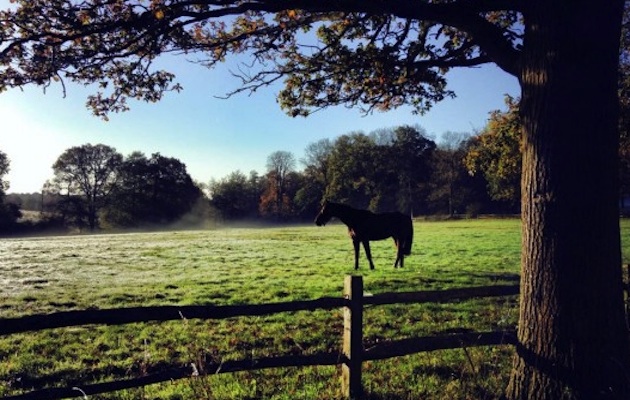A water company is urging horse owners to take extra care spraying for weeds this spring after finding increased amounts of a herbicide chemical in streams and reservoirs surrounding equestrian facilities.
Higher amounts of the chemical clopyralid have been found in samples collected by catchment advisors from Anglian Water.
The company works in six natural catchments and has reservoirs at Rutland in Leicestershire, Ardleigh in Essex and Alton in Suffolk.
The chemical clopyralid is found in many grazing herbicides used to control docks, thistles, nettles and the resilient buttercups found in paddocks.
“We are by no means pointing the finger at the horse community, it’s more that we are trying to raise awareness of this issue,” said Anglian spokesman Regan Harris, who keeps two horses in Rutland.
“We also really want to stress, this is not an issue caused by the chemical companies. It’s more a filling, rinsing and disposal issue rather than actual application, as these products are water resistant after a couple of hours. Hence why it’s hard for us to get them out of the water, once they’re in it.”
Water found containing traces of the chemical needs extensive treatment before it reaches customers’ taps.
Anglian Water has issued guidelines for horse owners ahead of the spring spraying to limit the impact on the environment, and launched a survey on what herbicides are being used and why, by horse owners, farmers and gardeners.
It advises ensuring sprayers are serviced and calibrated before use, to target only young and growing weeds and to wear suitable protective clothing.
The weather forecast should be checked to avoid spraying on a windy day or when its is about to rain, to prevent the product from being blown or washed into the nearest river.
Related articles:
- Think you have grazing sussed? There may be more to learn…
- Horse & Hound question of the week: How should I feed to compensate for nutritionally poor hay?
- Ask H&H: grazing alpacas with horses
Spray should be aimed away from any water and all drinking troughs covered.
“I know one of the reasons many of us keep horses is because of a wider love for being outside in nature and the environment,” Ms Harris said. “I for one was worried about the potential impact I might be having on the bigger picture.”




